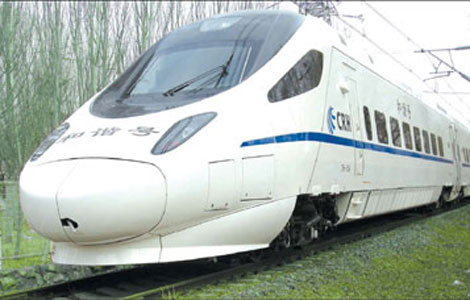Politics
Birth pangs of new nation
Updated: 2011-04-26 07:07
By Zhang Haizhou (China Daily)
South Sudan to strengthen cooperation with China
Juba, Sudan - South Sudan hopes to strengthen cooperation with China in oil and other sectors, said the regional government's spokesman.
Barnaba Marial Benjamin, minister of information of the government of south Sudan, also said Juba is considering building at least one more new pipeline to Kenya's Lamu port to reduce dependence on north Sudan in oil exports.
He welcomed Chinese participation in the project.
The south Sudan government is now cooperating with China to strengthen this relationship so that China will continue to help develop its oil industry, Benjamin said.
He said that cooperation between Beijing and Juba will not only be in the area of oil, but also in infrastructure, devastated by more than 50 years of civil war with the central government in Khartoum.
"Roads and houses can be built. We need hydropower. There are more things China can get involved in other than oil," Benjamin said.
But oil is set to be the main pillar of south Sudan's economy at least in the early years of the new country. It accounted for about 98 percent of the region's total revenue in 2010.
Sudan is the third-largest oil-producing country in sub-Saharan Africa, and about 80 percent of Sudan's oil lies in the south. Sudan currently produces about 500,000 barrels per day.
"In the future it can go up to one million, one-and-a-half million barrels a day," Benjamin said.
But the new landlocked country will face the problem of how to export its oil as there is only one pipeline connecting its major fields to Port Sudan on the Red Sea coast.
Earlier reports have pointed to Juba's controversial plan for a southern pipeline as a way to end its dependence on the north's infrastructure.
Benjamin confirmed the reports, saying: "Definitely we will have other pipelines, because there are enormous amounts of oil in south Sudan which cannot go through the same pipeline."
"We are interested in Lamu (on Kenya's east coast) because there is going to be a new port," he said.
But a senior official of a Chinese energy company questioned the viability of the plan.
"It will cost at least five years and more than $10 billion to build the pipeline in the mountains (between south Sudan's oil states and Lamu)," the anonymous official said.
"Production (from south Sudan's oilfields) is expected to peak next year, and then it will decline. Output may be very small in five years."
But Benjamin said south Sudan is also thinking of building another new pipeline to Djibouti, through Ethiopia. It will be 400 kilometers shorter than the Kenya pipeline, he added.
Benjamin is confident that more oil will be discovered in south Sudan.
But it is likely that the north will be very unhappy if the south builds new pipelines.
"It doesn't mean we'll abandon the current pipeline. We'll continue using this pipeline while we are building other pipelines," Benjamin said.
"The oil is in the south but the infrastructure is in the north. We need to export these oil resources," he said, adding that there are mutual interests and that a cooperative relationship with Khartoum is very important for Juba.
"We'll take three years to build it (the Lamu pipeline). And you can use it all your life as long as there is oil," he said, adding that Japan's Toyota company agreed to build part of the pipeline that passes through Kenya.
On the south Sudan side, however, it is not yet confirmed who would build it, Benjamin said.
Specials

Models gear up car sales
Beauty helps steer buyers as market accelerates.

Urban breathing space
City park at heart of industrial hub positions itself as top tourism attraction

On a roll
Auto hub Changchun also sets its sight on taking lead in railway sector